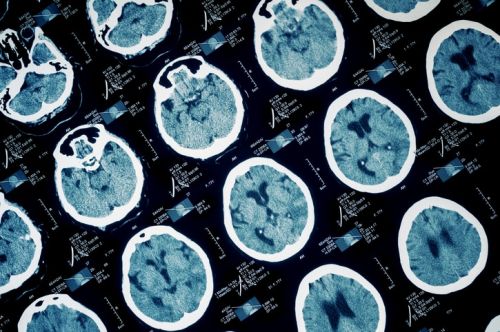Menu



A vehicle collision or serious fall can cause life-changing injuries. Sometimes the injuries are obvious, such as a broken bone or cuts and bruises. Other times, an impact can cause internal damage that may develop or worsen over time. For example, a violent blow to the head or a rear-end collision can cause a serious condition known as traumatic brain injury (TBI).
The CDC reported more than 64,000 traumatic brain injury-related deaths in 2020. The type of impacts that cause TBI are common and must be taken seriously. It’s important to know and recognize the symptoms of TBI and look for TBI symptoms after a crash or fall to ensure you receive appropriate medical care.
If you or someone you love suffered a head injury in an accident or a fall that was caused by another person’s negligence, count on a compassionate and skilled TBI injury attorney at McKinney Vos to protect your rights.
In general terms, there are two types of TBI brain injuries:
Car accidents, motorcycle crashes, pedestrian impacts, and serious falls can lead to a TBI injury. With a closed trauma, there may be no immediate symptoms of TBI. Traumatic brain injury symptoms may develop over days, weeks, or even months after the initial impact. This is why it is so important to understand TBI symptoms and carefully watch the injured person to be sure they have not suffered a traumatic brain injury.
TBI can cause different symptoms in different people. Also, TBI symptoms can vary depending on the severity of the impact. In some cases, TBI can be more serious than first expected because symptoms may appear over time. If you have suffered a TBI as a result of someone else’s negligence, you should not resolve an insurance claim or give up any legal rights until you fully understand the extent of your injuries.
Traumatic brain injuries fall into three basic categories. Each level of trauma may cause a variety of physical and psychological TBI symptoms. According to the Mayo Clinic, there are three levels of TBI injury and many related symptoms:
If any of these symptoms appear after a fall, crash, or another head impact, seek medical attention immediately.
The term concussion is commonly used to describe sports injuries for example in football and soccer scenarios. Car accident victims can also experience a concussion, especially in a rear-end crash when their head is thrown forward and back causing the brain to impact the skull. A concussion falls under the mild TBI category, but not every TBI injury is a concussion.
Even a mild concussion can cause long-term problems and require ongoing medical care. Many insurance companies try to pressure injury victims into a quick settlement, hoping to reduce company losses before the full extent of the injury is known. Before you negotiate with an insurance adjuster, consult with an experienced personal injury lawyer to understand your legal rights.
If you were injured in a car or motorcycle crash, a rear-end collision, or a fall because of another person’s negligent or reckless behavior, you can request compensation for your injuries and other related losses. A seasoned TBI attorney at McKinney Vos can also explain the types of compensation you can reasonably expect based on your circumstances.
Generally, once we can establish who is at fault for your injuries, we can request money damages to compensate you for:
We cannot calculate the exact amount of compensation you may receive at the start. Recovering from a TBI is especially complicated because you may not fully understand the extent of your injuries right away. Every TBI injury is different and you may need weeks, years, or the rest of your life to recover.
For a mild TBI brain injury, you may only require rest and over-the-counter medication to relieve your symptoms. With moderate to severe damage, you may need more extensive traumatic brain injury rehabilitation that could take much longer.
After a crash or serious fall, you need to focus on your medical care and physical and mental recovery. You don’t need to be pressured by insurance company representatives or opposing counsel to settle your case before you fully understand your needs.
To ensure you receive the compensation you need to cover your expenses, work with a compassionate TBI injury attorney at McKinney Vos. We will guide you through the legal process, keep you informed every step of the way, and never resolve your case before you understand the extent of your injuries and the treatment you will need.
We offer free, no-commitment consultations and we’re here to answer your questions whenever you need us. Call (512) 714-9373 or fill out our simple online form to schedule an appointment at your earliest convenience.
© 2025 McKinney Vos PLLC
Legal Disclaimer | Privacy Policy
Law Firm Website Design by The Modern Firm